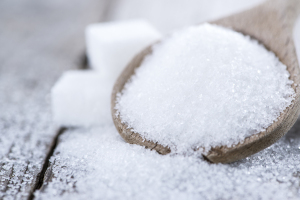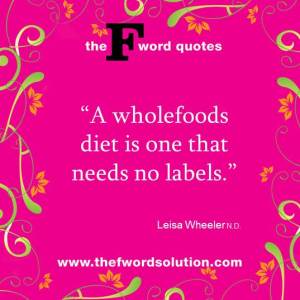Last night on Sixty Minutes they covered a story about the amount of hidden sugar found in common foods that people consume every single day. I think it’s fantastic that this type of investigation is being publicised on mainstream television, as it is obvious from the copious quantities of processed foods on the supermarket shelf, that the majority of consumers are still unaware of just what goes into processed foods.
The sugar issue is a big one. Refined white sugar is a highly addictive product, targeting pleasure centres in the brain that make us feel good – for a limited time. What inevitably follows a “sugar high” is a “sugar crash”, keeping people hooked into an addictive cycle of external sugary rewards. Once they come down from a sugar high, feeling lethargic and apathetic, cravings for another sugar hit drive people to seek their next sugar-fix. The dangerous thing with these cycles though is that many people are not even aware that they are in it because they are choosing what they think are “healthier options”. Because they eliminate foods that are normally associated with excess sugar such as lollies, biscuits, cakes, soft drink, ice-cream etc, the hidden sugars in “health foods” are not considered to be excessive. But they are, as Damon Gameau clearly demonstrated in the Sixty Minutes story, which discussed his findings from making That Sugar Film. Even though he was consuming what are considered to be quite normal and healthy packaged foods, he was still consuming forty teaspoons of sugar a day.
As I write in The ‘F’ Word Solution: “It is no secret that skilled food scientists are hired by fast food companies to develop products designed to be biochemically appealing and potentially addictive. The perfect combinations of sugar, salt, and fat are deliberately calculated to please your senses and satisfy your body’s need to seek foods containing these elements. Prior to our modern ability to process and manipulate food, these substances were not found naturally in the quantities we find them in our processed diets today. These ingredients in their natural form are valuable to our health, and therefore, we have a strong biological attraction to them. Our instinctive need for foods containing sugar, salt, and fat has been soundly exploited by the processed foods industry. It has left us with addictions to engineered foods that do nothing to support our health.”
One of the biggest problems in the issue of people consuming hidden sugars – and one that wasn’t really touched upon in this episode, is that all of the foods they are discussing, are processed foods. Whether they are labelled health foods, diet foods, or are products fortified with vitamins and minerals – the fact remains that they are not real foods as found in nature. This is where the real problem is. If people are unable to tell the difference between real food and merchandise created by multi-national food companies for profit, then of course they are going to be consuming things that are not good for them.
I write further in the book: “It is much more difficult to consume a primarily wholefoods diet today than it was in the past. Food, rather than being revered as a gift from nature, has become a manufactured commodity used to generate huge profits for the corporate world. Western civilisation has moved further and further away from nature, theorising that we can improve upon natural and perishable sources of food by creating factory processed, or genetically modified imitations. The danger to our health is when we confuse the products of commercial enterprise for real food.
What we have been conditioned to forget is that these products are commercial merchandise, created for profit rather than to provide nourishment and health, as food should. Those of us well-versed in reading labels can clearly see the harmful chemicals in processed foods. If our goal is optimal health, then eating anything that comes in a packet, bottle or container, with a mile long ingredients’ list of numbers and unpronounceable constituents, is not going to be in the best interests of our health. A wholefoods diet is one that needs no labels.”
Although it is a great step forward to be educating people about the hidden dangers of sugar, at the same time we need to be educating people about the benefits of eating a primarily wholefoods diet, as is found in nature. Giving up refined white sugar and processed foods containing sugar does not mean a life of deprivation and never eating anything sweet again. We were born to eat sweet foods, our cells are fueled by glucose, and we are drawn to sweet flavours – but it is the type of sweet foods that we consume that makes all the difference. Wholefoods that contain a full complement of vitamins, minerals, phytonutrients, antioxidants and fibre – nourish health, they don’t destroy it. Eating real food, not merchandise, is the answer – and being able recognise the difference is the key to avoiding the pitfalls of sugar addiction.
Leisa
![]()
Tagged as:
adrenal, adrenal exhaustion, adrenal fatigue, adrenaline, depression, detoxification, digestion, digestion health testing, emtracing health retreats, fat, Fatigued, Forgotten, forlorn, insomnia, iodine, raw food, saliva hormone testing, The 'F' Word Solution, the emotional aspects of healing, Thyroid


1 commentAdd comment
Your take on the sugar thing is really eye-opening. it is true that we hear a lot about sugar and not to eat too much of it, but no-one is really saying what we should eat instead. I can’t say I hear much about real food, just to check the labels of packaged food to choose the least sugary option.
I think you should try and get your message out there because so many people don’t even consider that what they are eating isn’t real food.